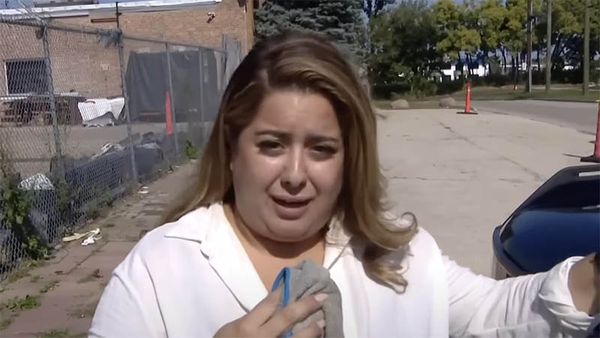WASHINGTON _ With Republicans in the House of Representatives unable to put a timetable on their new push to pass a health care bill, Health and Human Services Secretary Tom Price will continue to undermine the Affordable Care Act in the meantime.
"The ACA is fundamentally flawed, failing and cannot be fixed through administrative action," said an email statement Tuesday from HHS spokesperson Alleigh Marre. "In line with the department's mission to improve the health and well-being of the American people, Secretary Price and the HHS team will continue to pursue actions to mitigate the ACA's harmful effects and protect patients."
Price's involvement _ as House Speaker Paul Ryan, R-Wis., renews the Obamacare repeal legislation _ could dramatically affect the viability of the individual insurance market, the fate of Obamacare insurance marketplaces and the future of health coverage for nearly 20 million Americans.
President Donald Trump already has said Obamacare will "explode" under its own weight as a lack of young, healthy plan members and rising premiums cause insurers to leave the market.
Although health experts and the Congressional Budget Office disagree with Trump's assessment, most stakeholders agree that Price has the power and authority to be the triggerman if the Affordable Care Act were to fail.
"There are 1,442 citations in #ACA where it says 'The secretary shall ... ' or 'The secretary may ... ' @HHSGov, we'll look at every single one," Price tweeted on March 17.
"If the administration wants to destroy the individual market, it's not going to be too hard for them to do," said Timothy Jost, an emeritus professor of law at Washington and Lee University, in Lexington, Va.
Simply not enforcing the health law's individual-coverage mandate could destabilize the marketplace because millions of young, healthy plan members would presumably drop their insurance if they didn't face Internal Revenue Service penalties for not having coverage.
That would likely leave plans with a disproportionate share of sicker, costlier enrollees and force insurers to hike premiums to pay for them.
But the easiest way for Price to cause a marketplace failure, Jost said, would be to withhold federal cost-sharing reduction payments, which are slated to pay insurers roughly $9 billion this year.
"You pull $9 billion out of the market and the insurance companies would leave. They certainly wouldn't be back for 2018," Jost said.
The cost-sharing payments cut out-of-pocket costs, like deductibles and copayments, for low-income marketplace plan members. The health law authorized the payments but didn't specifically fund them.
When Congress implemented the mandatory "sequestration" cuts to the federal budget, the Obama administration removed the ACA subsidies from a list of programs that were slated for reductions and moved them to an IRS account that isn't subject to the appropriation process. It's the same account used to pay for the tax credits that help people pay for marketplace coverage.
In a 2014 federal lawsuit by Republicans in the House of Representatives against then-President Barack Obama, a lower court ruled the Obama administration had overstepped its authority by authorizing the payments outside the congressional appropriation process. The Obama administration appealed the ruling, and the case is on hold in the U.S. District Court for the District of Columbia.
If Price decided to simply drop the appeal, insurers would be on the hook for payments they are required by the health law to make, Jost said.
But doing so would undermine Price's efforts to boost insurers through a series of proposed rule changes designed to stabilize the marketplace.
Those rules allow insurers to cover smaller portions of plan members' medical costs, which allows them to offer cheaper plans that put more out-of-pocket expenses on enrollees.
Price could also weaken the ACA's Medicaid expansion by allowing states to impose work requirements and premium contributions on 11 million newly eligible Medicaid enrollees.
In a recent letter to the nation's governors, Price and Medicaid Administrator Seema Verma said the "expansion of Medicaid through the Affordable Care Act to non-disabled, working-age adults without dependent children was a clear departure from the core, historical mission of the program."
The Department of Health and Human Services also conducts outreach and public awareness campaigns to boost marketplace enrollment. But those efforts took an immediate hit when Trump pulled $5 million in ads during the final days of the 2017 open enrollment period. Price is unlikely to renew those outreach efforts.
He's also expected to implement Trump's vague executive order on the Affordable Care Act. The order gives Price and other agencies that have jurisdiction over the law the ability to grant waivers to "any provision or requirement" of the law that imposes a "fiscal burden" on any state or a "cost, fee, tax, penalty or regulatory burden on individuals" or others who purchase health care.
Rather than work to ensure the law's failure, Jost said, Price and others in the Trump administration should work to preserve and protect coverage under the Affordable Care Act.
"That's their job. They're in charge," Jost said. "Most Americans are not going to believe it if they say, 'Gee, we just blew this thing up, but somebody else made the bomb.'"







